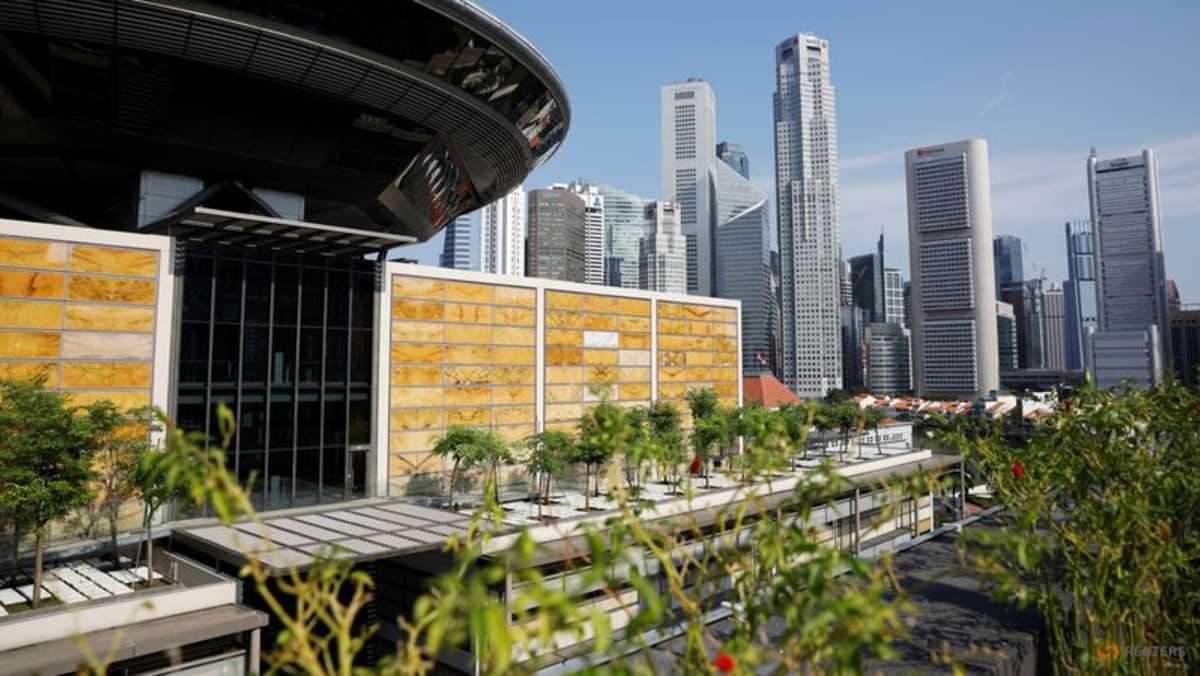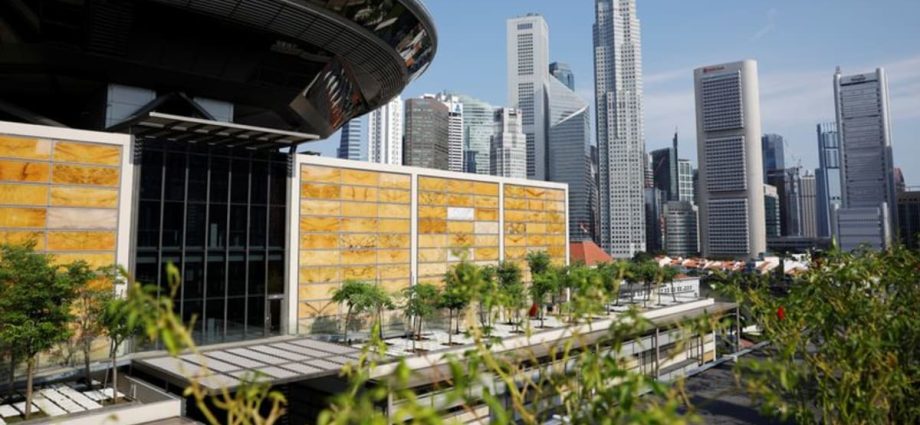
SINGAPORE: Litigants in Singapore could in the future tap generative artificial intelligence – which answers questions based on pre-loaded data – to help them with their claims or defence.
The courts are testing the use of generative AI in the small claims tribunal first – which sees about 10,000 cases a year – with an eye to expanding it to other areas such as divorce maintenance and civil claims.
The move is aimed especially at helping self-represented litigants.
As there are no lawyers in the small claims tribunal, it was deemed a suitable testing ground, Justice Aedit Abdullah said at a press briefing on Tuesday (Sep 26).
Justice Abdullah, the judge in charge of transformation and innovation, gave the update a month after the Singapore Courts signed a memorandum of understanding in August with American start-up Harvey AI to use the technology for two years.
The agreement came on the back of Chief Justice Sundaresh Menon’s visit to New York this year where he met the founder and CEO of Harvey AI, whose product is based on Open.AI’s GPT model.
Some law firms around the world have already been exploring the use of AI to help legal professionals with tasks such as the initial research and summarising of documents.
HOW IT COULD WORK
Expanding on how AI can help litigants, Justice Abdullah gave the example of a person seeking a claim for a washing machine he bought that is faulty.
He can ask the AI what his rights are, what his next steps could be, whether there is a deadline, how much he could possibly get from his claim and what the legal costs are.
Ideally, the AI would be able to inform the litigant how to proceed with his claim and point to the relevant websites and forms.
The system would ideally also be able to point the litigant to the material he should have, such as receipts, and possibly point to settlement.
This AI would have been fed specific information that is based on Singapore’s law, past cases and court systems, said Mr Tan Ken Hwee, the judiciary’s chief transformation and innovation officer.
This latest move is part of the Singapore Courts’ broader push to innovate. For instance, since August 2022, litigants could use SG-Notify via Singpass to send out push notifications to someone they wish to serve papers on but cannot locate.
This is a form of substituted service, which traditionally comes in the form of physical notes such as advertisements in the newspaper or notices posted on the respondent’s front door.
In November 2020, the courts launched a document signing service where most legal documents can be signed digitally.
Probate cases, where a person dies with an enforceable will and their family wishes to settle their estate, have also been simplified for non-complex cases – the record time being almost seven days and 18 hours.
On generative AI, there are already experimental sites put up where people can ask the chatbot questions on what they could do for neighbour disputes, crime cases or wills, among others.
IMPACT ON LAWYERS
In response to CNA’s question about the impact of AI on lawyers, Justice Abdullah said “anyone dealing with text has to think about the future” in this context, including lawyers and even journalists.
He said the Ministry of Law has been thinking about it, and AI and other technological changes present some challenges to the legal profession that it has to prepare for.
“What we’re doing now with the Harvey collaboration is aimed at small claims cases, it doesn’t impact on lawyers directly, but it doesn’t take a genius to kind of work out the implications. If we can do it for small claims cases, what is next? And what can the lawyers do?” the judge said.
What is clear is that change cannot be stopped, he added.
“We have a primary duty to the users of the court system, the public at large, to make sure our processes are as seamless and painless as possible … and if we have to change to accommodate a new environment … we have to facilitate that,” he said.
Justice Abdullah said there would probably be some impact, especially on younger lawyers, whose work and legal research may be affected by the use of generative AI.
This is because the technology can generate “pretty decent legal research” on specific legal issues – not just generating similar cases but putting the cases in context, highlighting the similarities to a factual situation and even projecting the possible questions a Singapore court might ask.
“So the challenge for us, for the broader legal profession, is with the advent of generative AI and these tools, how do we train and educate lawyers? So I think MinLaw is thinking about that. The Academy of Law, whom we work very closely with in the courts, is also thinking about that and they are working on some initiatives and projects which I think they will announce before too long.”
Justice Abdullah said lawyers have to be prepared for a new world in which they have to be more flexible and have a greater range of skill sets.
“Again, there’s already a tri-agency committee looking at revamping legal education involving our Chief Justice, Minister for Law, Minister for Education,” he said.
“For the mid- to long-term, beyond five to 10 years, lawyers may have to evolve in how they think about the profession. And they have to think that part of their role is not just lawyering, but they may have to transition, as in other professions, to thinking of their role of being problem-solvers.”
He said this is something that will eventually “hit the judges as well”, and suggested that there might be a point where judges might not need to be trained in law. Instead, there could be judges who are ex-businessmen, engineers, counsellors or social workers.
Justice Abdullah said the courts will bear in mind the question of the digital divide and will think of ways to facilitate those who might be less tech-savvy, such as with the deployment of volunteers.
The key is to ensure access to justice for everyone, he said.

